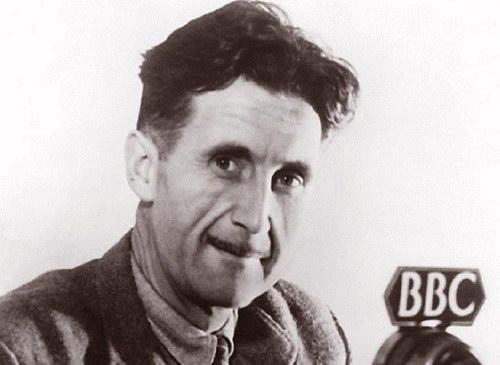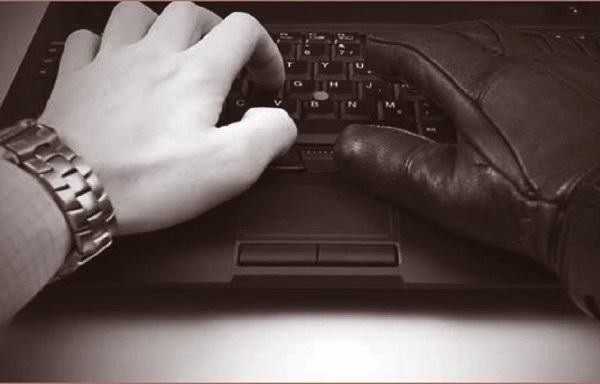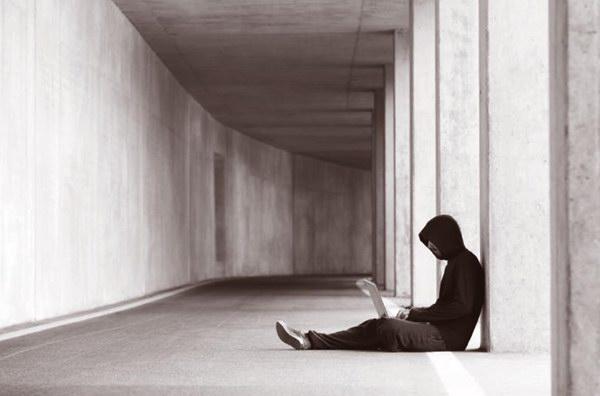Does Surveillance Promote Virtue? 监控能提高道德水准吗?
By Jennifer Graham 杨雪/译注



“Whenever you do a thing, act as if all the world were watching,” Thomas Jefferson said, never envisioning that two centuries later, the whole world would be watching indeed.1
From license-plate cameras to secret videotapes, from white-hat hacking to social-media checks by employers,2 never have Americans been so exposed. Corporate computer experts scrutinize our buying habits, even at the supermarket; technologically savvy police as well as car-rental companies and insurers track our driving habits; and hackers can expose our banking and email transactions with impunity.3
Weve become a Santa Claus society year round: That is, they see us when were sleeping and they know when were awake. So will this make us good for goodness sake?
Jefferson presumed that if the world were watching, people would behave better; we would strive to be our noblest selves. And there is evidence that he is right. A few years ago, Scientific American reported on a study at Newcastle University in England, in which subjects behaved better when there were no real eyes, but posters with images of eyes in the rooms. Even the subliminal suggestion of being watched, it turned out, nudged people into more ethical behavior.4 In other settings, posters depicting watching eyes deterred bike thieves and encouraged people to clean up after themselves at lunch.
“The researchers found that during periods when the posters of eyes, instead of flowers, overlooked the diners, twice as many people cleaned up after themselves,” Sander van der Linden wrote in the magazine.
Extrapolate, and you might assume that in the Orwellian state to which were devolving,5 the national character will improve. With license-plate cameras mounted on poles, no one will speed, run red lights, or tailgate6. With white-hat hackers on the prowl, no one will join Ashley Madison or slither around the seedier parts of Tinder.7
In 1913, Supreme Court Justice Louis Brandeis said as much in a now-famous article in Harpers Weekly.8 “Publicity is justly commended as a remedy for social and industrial diseases,” he wrote. “Sunlight is said to be the best of disinfectants9; electric light the most efficient policeman.”
It is too early to tell if 24-7 sunlight will substitute for the rapidly shrinking church and religious faith in the business of morality and ethics, as were just a few years into this inadvertent10 social experiment.
Moreover, the sunlight itself can be complicated, striped as it is with 50 shades of black. While they seem to do good in bringing misdeeds to light, white-hat hacks, like the Impact Groups takeover of Ashley Madison data and Edward Snowdens11 leak of U.S. government classified data, too often break laws or dart unthinkingly across bright moral lines.
When my youngest daughter was three years old and unable to grasp that she could be seen even if she closed her eyes, shed cover her eyes with her hands and shriek “Dont see me!” when Id come across her doing something wrong. Like a good comedian, she conveyed a truth hidden behind a laugh.
To feel remorse or shame, and to instinctually try to conceal it, requires a moral base on which we can build.
Unfortunately, there will always dwell among us—as we witnessed in the horrific shootings in Virginia—miserably broken people who purposefully seek sunlight for their rank deeds.12 The prospect of the whole world watching does not discourage, but in fact motivates their kind, and even as a society of watchers compels others to behave better, they will behave worse. For them, publicity is not remedy but motive, and the threat of punishment—whether by immediate exposure or eventual judgment by an angry God—is irrelevant.
Ultimately, however, morality is shaped not by either invisibility or exposure, but by personal will. We would do better to place our hope not in more speed cameras and “ethical” hackers, but in the more difficult work of promoting strong values. As C. S. Lewis13 so powerfully observed about the foundation of a truly ethical life: “Integrity is doing the right thing, even when no one else is watching.”
“不管做什么,都要感覺全世界都在看着你。”托马斯·杰斐逊这么说的时候,一定想不到两百年后,整个世界真的都处于监视之中。
从交通违章拍照到秘密录像,从白帽黑客到雇主对员工社交媒体的核查,美国人从未被置于如此公开监视之下。企业电脑专家监视着我们的购物习惯,连超市购物也不放过;专业技术警察、租车公司、保险公司追踪着我们的驾驶习惯;黑客则可以公开我们的银行账户信息和邮件往来却不受任何惩罚。
我们仿佛处在一个一年到头都被圣诞老人看着的社会:睡着时被其注视,醒了也逃不过其法眼。这种密切关注真的能让我们变得更好吗?
杰斐逊认为如果全世界都在看着,人们就会表现得更好;我们会努力做最高尚的自己。确实有证据可以证明他的观点。几年前,《科学美国人》杂志报道了英国纽卡斯尔大学进行的一项研究,研究表明当屋子里没有真人的眼睛,而挂着画有眼睛的海报时,人们表现得更好。事实证明,即使只是潜意识里感到被注视,人们的行为举止也会更符合道德规范。在其他场合,画有眼睛的海报还会威慑偷自行车的贼,也使人们在午餐后更主动地清理餐桌。
“研究人员发现,当画有眼睛的海报注视着用餐者时,饭后清理餐桌的人多出了一倍,画有花的海报则没有这个效果。”桑德·冯·德·林登博士在杂志中写道。
由此推断,既然我们正在迈入奥威尔描述的那种监视无处不在的状态,国民的道德会有所提高。路边柱子上安了违章拍照摄像头,就没人超速、闯红灯或是追尾。白帽黑客四处巡视,就没人会登录婚外情网站,也没人会浏览Tinder应用中的下流内容。
1913年,最高法院大法官路易斯·布兰迪斯在《哈泼周刊》的一篇影响广泛的文章里也表达过类似的观点。“公开曝光是治疗社会和工业疾病的一剂良药,”他写道,“据说日光是最好的消毒剂;灯光是最有效的警察。”
在道德伦理方面,每周七天、每天24小时的日光(指无处不在的监控)能否代替数量锐减的教堂和日益萎缩的信仰还不好说,因为这项无意间进行的社会实验进行的年头尚浅。
再者说,日光本身也很复杂,光亮中斑驳着五十度黑。白帽黑客也许可以曝光恶行,但也常常触犯法律或者突破道德底线,比如黑客团队Impact Group对Ashley Madison网站数据的泄露和爱德华·斯诺登对美国政府机密文件的公开。
我最小的女儿三岁的时候,不明白即使她闭上眼睛,别人也看得见她。被我发现干了坏事,她就会双手蒙住眼睛大叫“看不见我!”她像一位优秀的喜剧演员,稚嫩的笑声后藏着真理。
对错误的行为感到懊悔或羞愧,本能地想要去掩盖,需要有一定的道德基础。
不幸的是,总有一些精神不健全的人蓄意为他们的罪行寻求曝光,比如弗吉尼亚枪击案。全世界都在看并没有使他们退却,反而让他们更有动力。整个社会的注视让别人表现更好,却让他们表现更差。对他们来说,公开曝光不是良药,而是动力,至于可能遭受的惩罚——不管是当时的曝光还是最终惹怒上帝并受到审判——都是无关紧要的。
然而说到底,不管是公开曝光还是无人知晓,道德都不会因此被塑造,还是得靠个人的意志。与其寄希望于测速摄像头和“有道德的”黑客,不如努力建立起牢固的价值观。C. S. 刘易斯有力地指出了真正意义上道德生活的基础:“正直是即便没人监督的时候,依然能严格要求自己。”
1. Thomas Jefferson: 托马斯·杰斐逊(1743—1826),美国第三任总统,《独立宣言》主要起草人;envision: 想象,展望。
2. license-plate: 车牌照;white-hat (hacker): 白帽黑客,通常受雇于安全公司,利用黑客技术,攻击网络系统来测试其安全性。
3. scrutinize: 仔細彻底地检查;savvy: 有见识的,精通……的,technologically savvy意为“精通技术的”;impunity: 免于受罚,不受惩处。
4. subliminal: 潜意识的;nudge: 轻推,鼓励。
5. extrapolate: 推断;Orwellian state: 奥威尔式的国家,指英国作家乔治·奥威尔(1903—1950)在反乌托邦小说《1984》中描述的政府对人民高度监控、具有监视和监听功能的“电幕”(telescreen)无处不在的国家;devolve: 移交,转移。
6. tailgate: 追尾。
7. on the prowl: 潜行,四处寻觅;Ashley Madison: 一家专门为已婚人士提供交友、约会服务的社交网站,2015年网站遭黑客攻击,用户信息泄露;slither: 滑动;seedy: 肮脏的,下流的;Tinder: 一款手机交友应用,基于用户的地理位置为其推荐好友。
8. Louis Brandeis: 路易斯·布兰迪斯(1856—1941),第一任美国最高法院犹太裔大法官,布兰迪斯大学即以他的名字命名;Harpers Weekly:《哈泼周刊》,美国的一本政论杂志,1857—1916年间发行,以大量篇幅报道了美国内战。
9. disinfectant: 消毒剂。
10. inadvertent: 无意的,出于无心的。
11. Edward Snowden: 爱德华·斯诺登,曾是CIA(美国中央情报局)技术分析员。2013年6月将美国国家安全局监听项目的秘密文档披露给了《卫报》和《华盛顿邮报》,随即遭美国政府通缉。
12. horrific shootings in Virginia: 发生在弗吉尼亚的恐怖枪击案,指2007年4月16日在美国弗吉尼亚理工学院暨州立大学发生的枪击事件,连同凶手在内,共有33人死亡,是美国历史上死亡人数最多的校园枪击案;rank: 公然的,极端的。
13. C. S. Lewis: C. S. 刘易斯(1898—1963),英国著名的文学家、学者、批评家,最广为人知的作品是《纳尼亚传奇》系列。

